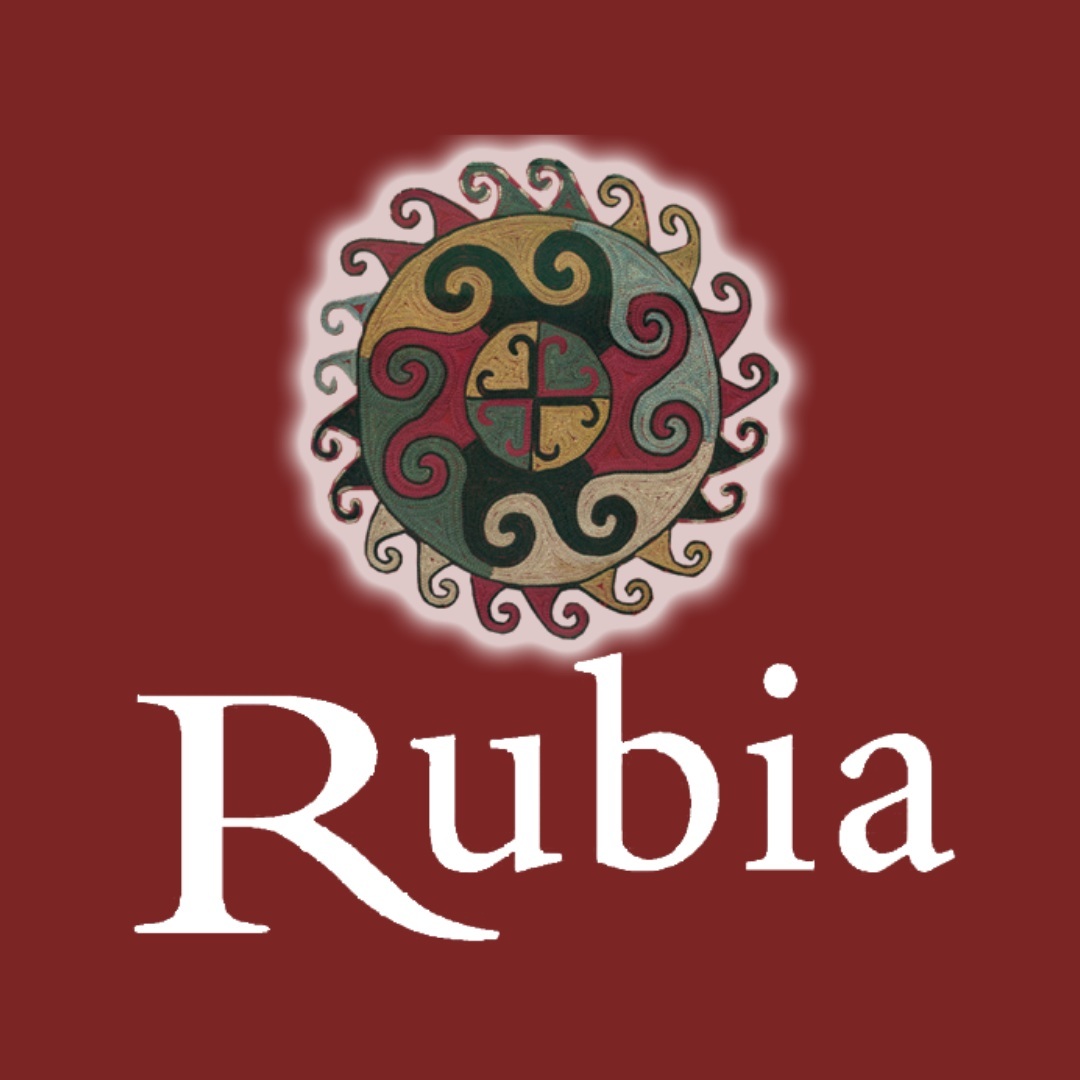Since 2001, Rubia, a Lexington-based non-profit, has enabled women around the world to empower themselves through the creation and sale of heritage textiles. Four years ago Rubia partnered with two Malian cooperatives in the ancient cities of Djenne and Segou to support bogolan production as terrorism continues to scare away customers.
Rubia admires these organizations for their exquisite textiles and for offering meaningful work to women and youth. This exhibit showcases their different styles, one the traditional Tanti Bogolan Women’s Association and the other a blend of old and new designs created by Ndomo Workshop and Conservatory of Natural Dyeing.
Tanti Bogolan Women’s Association- Fatoumata Kanakoma (right), widowed mother of seven children, “Tanti Bogolan,” started her association in 1994 when Djenne’s tourist market for bogolan was booming. Tanti Bogolan’s mother taught her to dye bogolon as her mother’s mother had done before her. Forty women, ranging in age from 18 to 59, belong to her cooperative. Most of the artisans cannot read or write so they value their children’s education. Since the disappearance of the tourist market, school fees are unaffordable and finding alternate markets for their bogolan is their most significant challenge.
Ndomo Workshop and Conservatory of Natural Dyeing- One of Mali’s preeminent bogolan artists, Boubacar Doumbia (far right), established this social enterprise in 1990 to create jobs for youth and preserve traditional knowledge in Segou. In the 1970s, Doumbia and five other artists created Groupe Bogolan Kasobane, a group that saved bogolan from going extinct after its study had been forbidden during the colonial era at the Institut National des Arts in Bamako. Bogolan scholar, Janet Goldner, writes that Groupe Bogolan Kasobane is largely responsible for having elevated bogolan to symbol of Malian and even African identity: They, like other African intellectuals, are part of a larger effort to uncover and reconstruct histories that were disrupted and erased by colonialism. Their insistence on using local resources and “elevating” materials associated with craft are strategies employed by many contemporary artists throughout the world.
Ndomo’s mission is to teach ancient and sustainable techniques of dyeing cotton to unemployed and uneducated young men and women. In Segou where the workshop is located, extremists from Gulf nations have built new mosques where they are trying to recruit vulnerable youth to become violent jihadists. Ndomo offers a peaceful alternative: training and employment as textile artists. Ndomo defines itself as “more like an African family than an employer-employee relationship.” The Ndomo artists are educated in traditional Malian values: work, responsibility, solidarity, and personal commitment.
Mali’s Great Mosque of Djenné, a UNESCO Cultural Heritage site.






